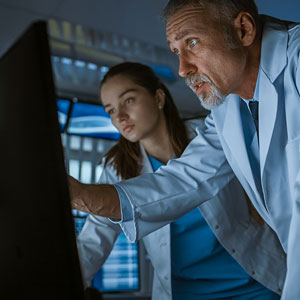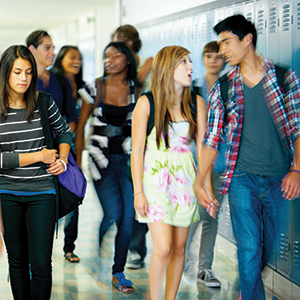-
Forward Look
Let the Buyer Be AwareAt-home genetic tests offer limited information on cancer risk.
by Sharon Tregaskis
-
Focusing on Proton Therapy
Proton therapy, an alternative to standard radiation therapy, is safe and effective. But evidence is lacking that it's always a better option than standard radiation, and some insurers balk at the higher price tag.
by Sue Rochman
-
Forward Look
Teen Use of Tobacco Products Spirals UpwardE-cigarettes are upending decades of smoke-free successes.
by Nancy Averett
-
Forward Look
Concerns Raised About MRI Contrast DyeSome patients report unusual side effects after scans.
by Stephen Ornes
-
Forward Look
Pediatric Leukemia Treatments Are Not Just for KidsStudy supports using these regimens for teens and young adults.
by Bradley Jones
-
Forward Look
What’s Next? Summer 2019Probe may provide easier way to spot melanoma.
by Bradley Jones
-
Healthy Habits
Where There’s SmokeWhat to know before firing up the grill during barbecue season.
by Bradley Jones
-
Healthy Habits
Overlooking ObesityPublic awareness of the link between obesity and cancer risk is poor.
by Jane C. Hu
-
Proton Therapy Is Associated With Reduced Side Effects
When combined with chemotherapy, the newer form of radiation comes with fewer severe side effects than standard radiation therapy, a study suggests.
by Sue Rochman
-
When a Top-Ranked Cancer Center Comes to a Hospital Near You
Research shows prominent cancer hospitals have different surgical outcomes than their affiliates.
by Marci A. Landsmann
Cancer Talk
Treatment Combination Improves Survival in EGFR-positive Lung Cancer
Adding chemotherapy to targeted therapy improves outcomes for people with advanced EGFR-positive non-small cell lung cancer.
by Sandra Gordon
Lessons From 20 Years Living With CancerMultiple myeloma survivor Jonathan Gluck reflects on uncertainty, and the scientific progress that has kept him living with cancer for more than two decades.
by Eric Fitzsimmons
The Enduring Importance of Cancer Disparities ResearchOpening session from AACR conference highlights how perseverance and adversity have informed cancer disparities research over the years.
by Eric Fitzsimmons
Most Cancer Survivors Don’t Meet Healthy Diet GoalsDespite research linking fruits and vegetables to cancer survival, many people do not change their eating habits after diagnosis.
by Darlene Dobkowski















